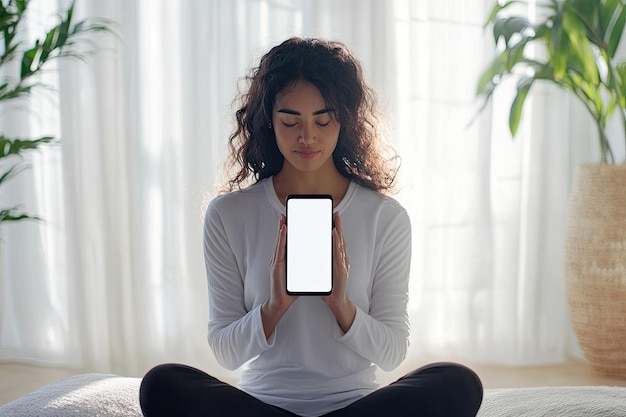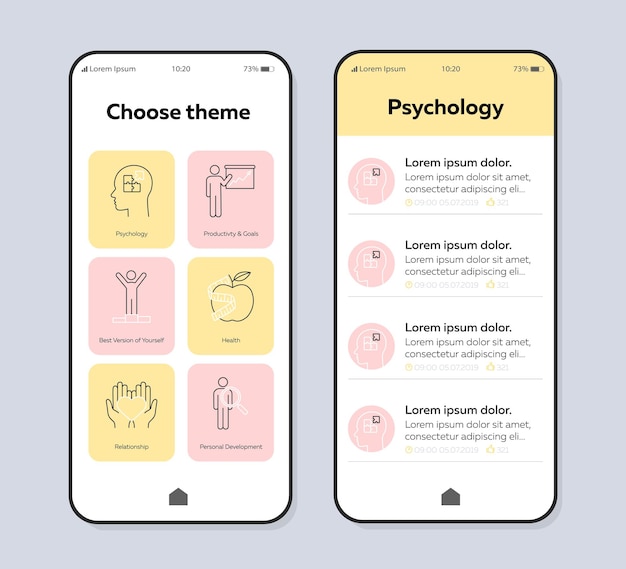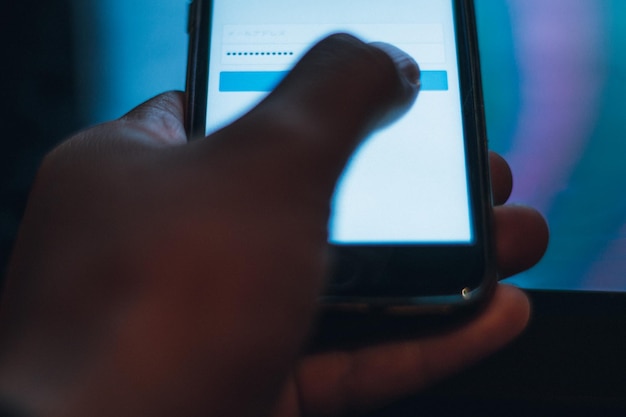Mental Health Apps: Effectiveness and Privacy Concerns in 2025

Mental health apps offer promising tools for managing well-being, providing accessible support; however, their effectiveness varies, and emerging privacy concerns necessitate cautious adoption, particularly regarding data security and potential misuse in 2025.
Are mental health apps truly effective, or are we trading our privacy for convenience? In 2025, the landscape of digital mental healthcare is evolving rapidly, and it’s essential to understand both the potential benefits and risks. Let’s dive into the world of mental health apps: Are They Effective and What are the Latest Privacy Concerns in 2025? and explore if these tools are genuinely helping or opening new doors to privacy breaches.
The Rise of Mental Health Apps
Mental health apps have seen explosive growth, driven by increased awareness of mental well-being and advancements in technology. These apps range from those offering guided meditations to tools for tracking mood and providing cognitive behavioral therapy (CBT) techniques. But are they really working?
The appeal is undeniable: convenience, accessibility, and anonymity. Users can access support at any time, from anywhere. However, the rapid proliferation of these apps raises important questions about their efficacy and the safety of user data.

Benefits of Mental Health Apps
Many mental health apps offer tangible benefits, especially when used as part of a broader treatment plan. Here are some key advantages:
- Accessibility: Mental health support is available 24/7, breaking down geographical barriers.
- Affordability: Some apps are free or less expensive than traditional therapy.
- Anonymity: Users can explore their mental health concerns without fear of judgment.
- Self-Management Tools: Apps offer tools for mood tracking, journaling, and practicing mindfulness.
These benefits can be particularly valuable for individuals who may not have easy access to traditional mental healthcare or who prefer self-directed support.
However, it’s essential to recognize that not all apps are created equal. The effectiveness of a mental health app depends on its design, evidence base, and how well it aligns with individual needs.
Effectiveness: Do Mental Health Apps Really Work?
The central question remains: Are mental health apps effective? The answer is nuanced, with research showing both promise and limitations. It’s critical to examine the evidence base behind these tools.
While many users report positive experiences, it’s important to differentiate between perceived benefits and clinically validated outcomes.
Research-Backed Apps
Some apps are developed based on established therapeutic principles, such as CBT or mindfulness. Studies have shown these apps can be effective in reducing symptoms of anxiety, depression, and stress.
- CBT-based apps: These apps can help users identify and change negative thought patterns.
- Mindfulness apps: Regular use can promote relaxation and reduce stress.
- Mood tracking apps: Providing insights into emotional patterns, helping users understand triggers and develop coping strategies.
However, the quality of research varies, and more rigorous studies are needed to fully understand the long-term effectiveness of these apps.
The key is to look for apps that are based on solid scientific evidence and have been evaluated in clinical trials.
The Dark Side: Privacy Concerns in 2025
As mental health apps collect increasingly sensitive data, privacy concerns have become paramount. In 2025, these concerns are more relevant than ever, with sophisticated data breaches and misuse of personal information becoming increasingly frequent.
Users need to be aware of the potential risks associated with sharing their mental health data through these apps.

Data Collection Practices
Many mental health apps collect a wide range of data, including:
- Personal information: Name, email address, phone number, and demographic data.
- Mental health data: Mood entries, journal entries, therapy session notes, and medication information.
- Usage data: How often the app is used, which features are accessed, and how long users spend on the app.
This data is often stored on servers that may not be adequately secured, making it vulnerable to breaches and unauthorized access.
Furthermore, some apps share user data with third parties, such as advertisers or data brokers, without explicit consent.
Navigating the Privacy Minefield
Given the significant privacy risks, it’s crucial for users to take proactive steps to protect their data. This involves carefully evaluating apps before downloading and understanding their privacy policies.
Here are some strategies for navigating the privacy minefield:
Read the Privacy Policy
Before using any mental health app, carefully review the privacy policy. Pay attention to:
- What types of data are collected
- How the data is used
- Whether the data is shared with third parties
- How the data is stored and secured
If the privacy policy is unclear or raises concerns, consider choosing a different app.
Check App Permissions
Be aware of the permissions an app requests. Does it really need access to your contacts, camera, or location?
Limit permissions to only those that are essential for the app to function properly.
The Future of Mental Health Apps
The future of mental health apps hinges on addressing both effectiveness and privacy concerns. In 2025, we can expect to see increased regulation and a greater emphasis on data security.
Developers will need to prioritize user privacy by implementing robust security measures and providing transparent data practices.
Regulation and Oversight
As the mental health app market continues to grow, there is a growing need for regulation and oversight.
- Data privacy laws: Strengthening and enforcing data privacy laws to protect user data.
- App certification: Developing certification programs to ensure apps meet certain standards of effectiveness and privacy.
- Transparency requirements: Requiring app developers to be transparent about their data collection and sharing practices.
These measures can help build trust and confidence in mental health apps.
Only by addressing these concerns can we harness the full potential of digital mental healthcare while safeguarding user privacy.
| Key Aspect | Brief Description |
|---|---|
| 📱 Accessibility | Mental health support available 24/7, breaking down barriers. |
| 🔒 Privacy Risks | Sensitive data collection and potential sharing with third parties. |
| ✅ Effective Apps | Apps backed by CBT, mindfulness, and mood tracking techniques. |
| 🛡️ Data Protection | Read privacy policies and limit app permissions for data security. |
Frequently Asked Questions
▼
The effectiveness varies among apps. It depends on the app’s design, scientific backing, and how well it fits individual needs. Research-backed apps based on CBT or mindfulness show promise.
▼
Main concerns include the collection of personal and mental health data, potential sharing with third parties, and inadequate data security, which could lead to breaches and misuse of information.
▼
Read the app’s privacy policy carefully, check app permissions, and limit access to only essential functions. Be cautious about sharing sensitive information, and look for apps with strong security measures.
▼
Increased regulation is expected to address privacy concerns and ensure effectiveness. Data privacy laws, app certification programs, and transparency requirements are likely to become more common.
▼
Look for apps based on scientific evidence, developed with input from mental health professionals, and offering clear privacy policies. User reviews and ratings can also provide valuable insights into app quality.
Conclusion
In 2025, mental health apps offer accessible and convenient support, but users must navigate the landscape with caution, prioritizing privacy. By staying informed, reading privacy policies, and choosing apps wisely, individuals can leverage the benefits of digital mental healthcare while minimizing the risks. The future of these apps depends on developers and regulators addressing the dual challenge of effectiveness and data protection.
